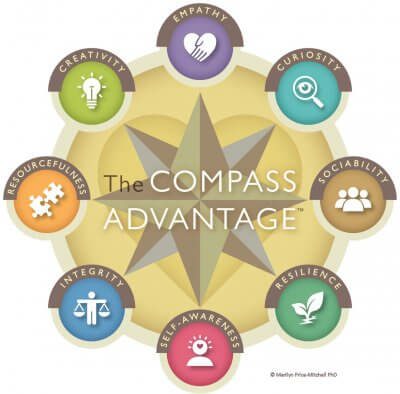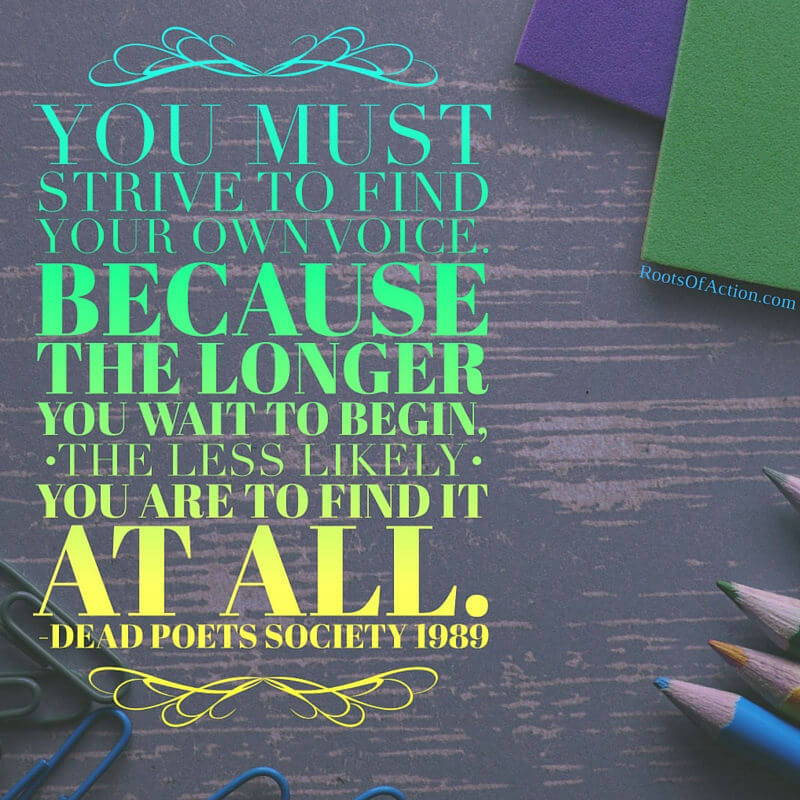
Looking for inspirational family movies that foster great conversations with your maturing children? Watching movies as a family has regained popularity during the Covid-19 pandemic. But truthfully, this activity is a great way for families to slow down, relax, and enjoy each other’s company anytime.
Watching family movies serve many purposes, from pure entertainment to learning. Inspirational family movies have the potential to do much more than entertain. They can quite literally shape children’s lives.
One way for pre-teens and teens to learn about and act on the core abilities of The Compass Advantage is to first identify the compass abilities in others. Movies give kids this opportunity!
What are Inspirational Family Movies?
What makes a movie stimulating and inspiring? Inspirational family movies provide ways to recognize curiosity, sociability, resilience, self-awareness, resourcefulness, integrity, creativity, and empathy in other people. These are the core abilities of The Compass Advantage framework and have been shown in research to help people thrive in life.
When children recognize the compass abilities in the characters of movies, they become more aware of the same strengths in themselves. Watching inspirational family movies with parents can become an important developmental practice for teens, particularly when parents take the time to discuss important aspects of the movie with their kids. Too tired after the movie? Set a time, perhaps over dinner, to talk the next day.
The discussions that arise from watching family movies not only increase self-awareness for children, but also for parents. It is an opportunity for parents to share their own stories related to the character strengths under discussion, as well as to listen to their children’s stories. In the process, families can become aware of each other’s abilities and how each family member uses those abilities in the world each and every day.
As a complementary and informative activity, parents and their children over the age of 10 can take one of our research-based Compass Surveys that measure how often each person practices the eight compass abilities in their everyday lives. Armed with additional information about oneself and strengths found in movie characters, family conversations can progress to much deeper levels.
Parents and teens can take opportunities to reflect on the abilities they’d like to improve. Inspirational family movies, like the ones listed below, often show the role of mentors and other support systems to which children can turn to improve their lives.
8 Inspirational Family Movies That Help Shape Kid’s Identities
The following inspirational family movies contain characters who exemplify the core abilities contained in The Compass Advantage. Watch each movie as a family, then discuss how the highlighted ability was inspired and demonstrated by the particular characters suggested under each movie. While each film focuses on a different ability, be sure to talk about how the eight abilities are often inter-connected and influenced by each other. Extend your conversation to related character strengths, like honesty, compassion, courage, kindness, teamwork, fairness, forgiveness, gratitude, hope, humor, and leadership.
Conclude your discussion by asking each family member: What has inspired this ability in you and how have you demonstrated this ability in recent months? If you wanted to improve this ability, how might you do so? (No lecturing here! Let your kids come up with their own insights!) If your children have already completed a Compass Survey, they will have even more great ideas of their own!
The following family movies are rated either PG13 or PG, meaning they are most appropriate for children thirteen or over. For ten to thirteen, parents should use their own evaluation of a child’s maturity.
Alice in Wonderland (2010); Rating PG; (Curiosity)
Through this latest version of the classic family film, discuss how 19-year-old Alice’s fate was shaped by her curiosity. How did curiosity impact her self-awareness, creativity, and resilience?
Finding Forrester (2000); Rating PG13; (Sociability)
Discuss Sean Connery’s movie character and the relationship he developed with a high school student. What did they learn from each other? How did sociability impact their integrity?
Whale Rider (2003); Rating PG13; (Resilience)
Discuss the movie character of Pai and how she developed grit and perseverance to overcome life’s challenges. How did resilience impact other multiple abilities?
Seabiscuit (2003); Rating PG13; (Self-Awareness)
Discuss how movie characters Charles, Red, and Tom developed self-awareness through mindfulness. What role did self-awareness play in developing resilience and inspiring others?
Dead Poets Society (1989); Rating PG; (Integrity)
Discuss movie character, Ethan Hawke’s growth of integrity and how it transformed him and his classmates. What other inter-connected abilities grew as the result of the student’s experiences?
Akeelah and the Bee (2006); Rating PG; (Resourcefulness)
Discuss how character Akeelah pursued her goals and to whom she opened herself to receive support. What internal achievements did she gain as a result?
Life Is Beautiful (1997); Rating PG13 (Creativity)
Discuss the movie character of Guido Orefice. What inspired his creativity and how was it demonstrated? How were his ideas original and relevant to his situation?
The King’s Speech (2010); Rating PG13; (Empathy)
Discuss how the movie characters of Lionel and Bertie developed empathy for one another. What strategies did Bertie use to shift his perspective? How did Lionel and Bertie’s empathy impact those around them?
Beyond Entertainment: Watching Family Movies through a New Lens
If you discuss the suggested questions noted under the above inspirational family movies, you’ll begin to shift how you watch movies with your children. You and your kids will observe characters through a new lens – the lens of human development. Through family movie-watching, you’ll begin to ask each other different questions, share new observations about character strengths and weaknesses, and gain greater awareness of yourself and others.
As a parent, you will observe in greater detail how adults inspire the compass abilities in children and vice versa. Human development is about learning and making meaning from life experiences. Inspirational family movies contain meaning. Indeed, movies can teach us about human development, but only if we experience them with eyes beyond entertainment.
References
Niemiec, Ryan M.; Wedding, Danny (2014). Positive Psychology at the Movies. Boston, MA: Hogrefe Publishing.
Related Articles You May Enjoy
https://www.rootsofaction.com/developing-character-strengths-a-vital-goal-of-education-part-2/
Published: November 12, 2020





